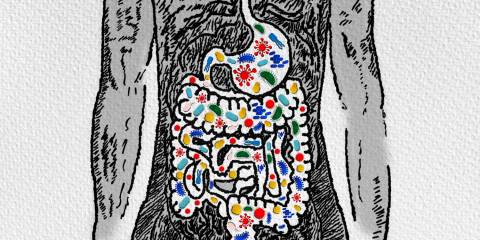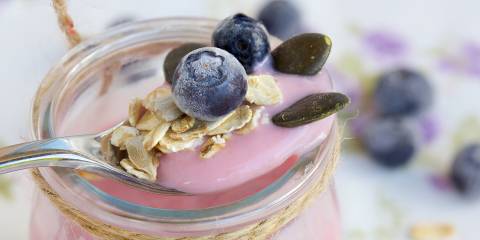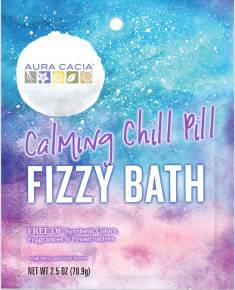According to the Centers for Disease Control, postpartum depression in the US affects between 11 and 20 percent of new mothers. it impacts the mom’s ability to care for and bond with her infant, as well as her ability to function in daily life.
The Effects of Postpartum Depression
Postpartum depression can also produce long-lasting consequences in children’s cognitive, social-emotional, and physical health outcomes. The depression does not come alone though: It is associated with insomnia, fatigue, agitation, appetite problems, low self-esteem, and anxiety.
The anxiety often coexists with the depression in postpartum states. If breastfeeding is occurring, it is even more important to explore prevention strategies as many women will not take pharmaceuticals while breastfeeding. It can take several weeks for the therapeutic effect of pharmaceutical antidepressants to occur, and the drugs may have adverse effects on the breast-fed infant.
Probiotic Effects on Postpartum Depression
One recent study involves a two-center, randomized, double-blind, placebo-controlled trial testing the effect of Lactobacillus rhamnosus HN001 on atopic disorders including eczema, but also on pregnancy outcomes and postpartum symptoms of depression and anxiety.
Pregnant women were randomized to receive either placebo or 1 billion colony forming units of Lactobacillus rhamnosus HN001 daily, over a period of six months if breastfeeding. Mothers in the probiotic group reported significantly lower depression and anxiety scores than the placebo group.
Probiotics, Mood & Behavior
There is a growing body of literature linking the gut microbiota to brain chemistry, mood, and behavior. Many health problems, including mental-emotional disorders, are associated with altered gastrointestinal function and alterations in gut microbial makeup.
The findings of the recent study are consistent with two previous clinical studies of the effects of probiotics on mood. One was a randomized clinical trial in a population of 40 people with major depressive disorder treated with Lactobacillus acidophilus, Lactobacillus casei, and Bifidobacterium bifidum or placebo. This study found a significant reduction in symptoms of depression in the probiotic group.
In another study, 39 people with chronic fatigue and anxiety were randomized to Lactobacillus casei or placebo and found a reduction in anxiety, but not in depression.
Not all studies have demonstrated a significant therapeutic effect of probiotics on mood, but larger studies are being done to better understand this gut flora–brain connection. It will be interesting to watch this unfold and to better understand the possibilities for both prevention and treatment. In time, we will also better understand what might be the most effective probiotic species and strains, duration, and dose.





